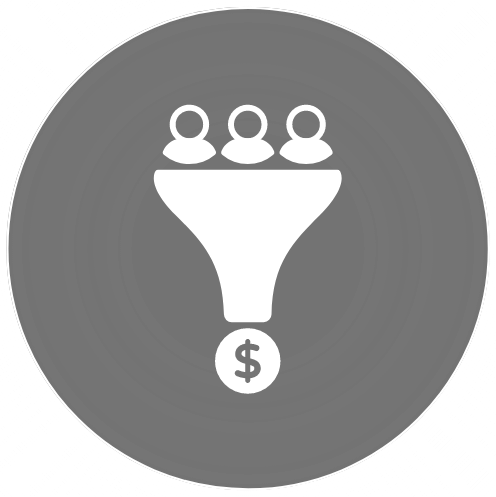When implemented correctly, LeadGen strategies can be a game-changer for businesses, driving growth, increasing customer acquisition, and ultimately, leading to business success. In order to do that, we must know everything about it. Keep reading to be part of it, or to enhance your current LeadGen strategy.
The Concept of LeadGen Strategies
LeadGen strategies are systematic processes of capturing and nurturing potential customers' interest in your products or services. It involves identifying and attracting potential leads, engaging with them, and converting them into loyal customers. Without a steady stream of potential customers, businesses would struggle to grow and thrive. LeadGen strategies provide businesses with the necessary tools and techniques to effectively reach their target audience and convert them into paying customers.
One key aspect of LeadGen strategies is the creation of compelling lead magnets. These lead magnets serve as incentives for potential customers to provide their contact information and express interest in a business's offerings. Lead magnets can come in various forms, such as e-books, whitepapers, or webinars, and they offer valuable information or solutions to customers' pain points.

The Role of LeadGen in Modern Business
In today's digital age, businesses are inundated with data and potential customers. With the rise of social media and online advertising, it has become increasingly challenging for businesses to stand out and capture the attention of their target audience. This is where LeadGen strategies play a crucial role.
LeadGen strategies help businesses cut through the noise and reach their target audience effectively. By utilizing various digital marketing channels and tactics, businesses can identify and attract potential leads who are genuinely interested in their products or services. This targeted approach ensures that marketing efforts are focused and results-driven.
Plus, LeadGen strategies enable businesses to gather valuable data and insights about their potential customers. By tracking and analyzing customer behavior, businesses can refine their marketing strategies and tailor their offerings to meet the specific needs and preferences of their target audience.
How LeadGen Contributes to Business Growth
As you see, LeadGen strategies play a pivotal role in driving business growth. By capturing and nurturing potential customers' interest, businesses can increase their customer base and revenue. When businesses have a consistent stream of high-quality leads, they can focus their resources on converting leads into paying customers, thus driving business growth.
One of the key advantages of LeadGen is its ability to generate targeted leads. Unlike traditional advertising methods that cast a wide net, LeadGen allows businesses to specifically target individuals who have shown interest in their products or services. This targeted approach increases the likelihood of converting leads into customers, resulting in a higher return on investment.
Besides, LeadGen provides businesses with valuable data and insights about their potential customers. By collecting information such as demographics, preferences, and behaviors, businesses can tailor their marketing strategies to better meet the needs of their target audience. This personalized approach not only enhances customer satisfaction but also increases the chances of repeat business and customer loyalty.
Implementing LeadGen Strategies for Business Success
Steps to Develop a Successful LeadGen Strategy
- Define Your Target Audience: Before implementing any LeadGen strategy, businesses must clearly define their target audience. This involves understanding their demographics, needs, pain points, and preferences. Defining the target audience is crucial as it helps businesses tailor their LeadGen efforts to attract the right people. By understanding their audience's characteristics and motivations, businesses can create targeted marketing campaigns that resonate with potential leads.
- Create Compelling Lead Magnets: Lead magnets are incentives that businesses offer in exchange for contact information, such as email addresses. These can include e-books, whitepapers, webinars, or free trials. By creating compelling lead magnets, businesses can attract potential leads and demonstrate their expertise in solving their pain points. Develop lead magnets that are aligned with your target audience's preferences and pain points. These lead magnets should offer valuable information, solutions, or tools that potential customers find irresistible.
- Optimize Landing Pages: Design and optimize landing pages that are visually appealing, user-friendly, and have a clear call-to-action. This helps in capturing the attention of potential leads and increasing conversion rates.
A landing page is a standalone web page that is specifically designed to convert visitors into leads. By optimizing landing pages, businesses can create a seamless user experience, provide relevant information, and guide potential leads towards taking the desired action, such as filling out a form or making a purchase.
- Implement Lead Nurturing Campaigns: Develop a comprehensive lead nurturing strategy to build relationships and trust with potential customers. This can be done through email marketing campaigns, personalized content, or targeted advertising.
- Analyze and Optimize: Continuously monitor and analyze the performance of your LeadGen strategies. Identify areas for improvement, test different approaches, and optimize your strategies based on the data and feedback received.

Overcoming Challenges in LeadGen Implementation
Implementing LeadGen strategies can come with its fair share of challenges. However, by being aware of these challenges and having strategies in place to overcome them, businesses can ensure smooth implementation and maximize their LeadGen efforts. Common challenges include data management, lead quality control, and limited resources. Investing in robust CRM systems, implementing lead scoring systems, and leveraging automation tools can help businesses overcome these challenges and achieve optimal results.
Measuring the Success of Your LeadGen Strategies
Measuring the success of LeadGen strategies is essential for businesses to understand the effectiveness of their efforts and make informed decisions for future growth.
Key Performance Indicators for LeadGen
When measuring the success of LeadGen strategies, businesses should focus on key performance indicators (KPIs) that align with their goals. These KPIs may include conversion rate, lead quality, cost per lead, customer acquisition cost, and lead-to-customer conversion rate. By tracking these metrics, businesses can identify areas for improvement and make data-driven decisions.
Continual Improvement of Your LeadGen Strategy
LeadGen strategies are not a one-time fix. To unlock sustained business success, businesses must continuously strive for improvement. This involves regularly reviewing and refining LeadGen strategies based on data and feedback, staying updated on industry trends, and embracing new technologies and tools that can enhance LeadGen efforts.
Future Trends in LeadGen Strategies
To stay ahead of the competition and continue unlocking success, businesses need to keep an eye on future trends in LeadGen.
The Role of Technology in LeadGen
Advancements in technology are reshaping LeadGen strategies. Artificial Intelligence (AI), machine learning, and automation are revolutionizing the way businesses attract, engage, and convert leads. Businesses that embrace these technologies and leverage data-driven insights will likely have a competitive advantage in the future.

Predicted Changes in LeadGen Strategies
LeadGen strategies are constantly evolving, and businesses need to adapt to stay relevant. Predicted changes in LeadGen strategies include a shift toward personalized experiences, increased focus on video and interactive content, and the integration of social media platforms. By staying informed and agile, businesses can position themselves at the forefront of LeadGen strategies.
Ultimately, unlocking success in business requires a comprehensive understanding of LeadGen strategies and their impact on business growth and customer acquisition. By implementing effective LeadGen strategies, measuring success, and staying attuned to future trends, businesses can harness the power of LeadGen and pave the way for long-term success.


-AK-148968-preview.png?width=842&height=310&name=1.01-1x1px-Embertribe-(Client-Services)-AK-148968-preview.png)








-1.jpg)






%20-%20500x500%20-%20SP%20-%2045.01.png)
%20-%20500x500%20-%20SP%20-%2049.01.png)
%20-%20500x500%20-%20SP%20-%2057.01.png)


.png)